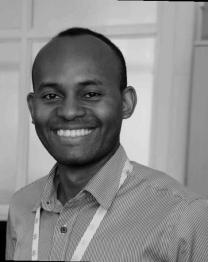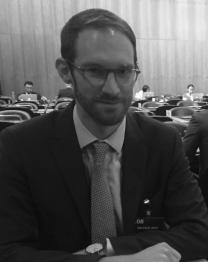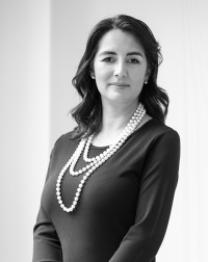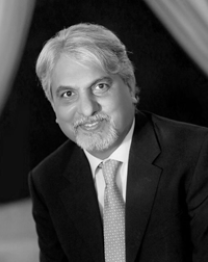Or watch the entire session:
:
Trade facilitation reforms aim at simplifying, harmonizing, standardizing, and making trade procedures more transparent and, as such, they are a constant endeavor of every country, not a one-off activity, giving NTFCs a permanent mandate. Consequently, NTFCs need to be considered as permanent platforms, coordinating national efforts to make trade, every day, a little bit cheaper, faster and simpler for economic prosperity. Understandably, Article 23.2 of the World Trade Organization Trade Facilitation Agreement obliges countries to set up or maintain a coordination mechanism that will support the implementation of the trade facilitation provisions included in the Agreement.
Implementing trade facilitation reforms requires planning and coordination, because it involves several government agencies as well as collaboration with the private sector. All of this takes place within busy reform processes with tight schedules and short deadlines, political pressure and legal obligations. Monitoring therefore help to keep track of everything that is going on simultaneously, by providing tools and methods for an efficient and coordinated approach to the implementation of trade reforms in the context of the WTO Trade Facilitation Agreement.

Iraldo Luis DJAO is economist and head of the Division for the Application of International Conventions at the Service of Economic Actions, Direction of legislation and value of the Direction General of Customs.
Just after his Master in Applied Economics in 2014, at the Omar Bongo University of Libreville, he joined a research and opinion polling firm where he worked as a consultant in charge of qualitative and quantitative studies.
In 2018, he joined the Customs Administration after a one-year training in the profession. In 2019, he joined the National Committee for Trade Facilitation, as a Member of the Secretariat.
As a member of the NTFC and at the same time at the Customs, he contributes to the coordination of trade facilitation measures with customs missions while ensuring compliance with the standards and procedures in force under the modernization program of the Malagasy Customs.
Finally, since 2020, Iraldo is leading the Consultation Framework project within the Customs to set up a permanent consultative dialogue framework bringing together all the stakeholders related to customs.

Orlando Cantell is an official at Her Majesty’s Revenue & Customs in the United Kingdom. He leads a team that represents the UK internationally on trade facilitation, manages the UK’s capacity building activities in customs, and runs the UK’s National Trade Facilitation Committee. His career in different UK departments has included policy roles in international trade in goods, transport, and business regulation.

Business Administrator specialized in Foreign Trade, has more than 25 years of experience in the private sector.
She has extensive experience in different administrative areas, holding executive positions of high responsibility such as the Administrative Management in Automotive Business NEOHYUNDAI S.A., and the Management of the Society for the Fight Against Cancer, SOLCA, Cuenca.
During the Executive Presidency of the Chamber of Industries of Cuenca, a position from which she developed vast knowledge and training in negotiation, skills in conciliation, construction of agreements and leadership; She also held the Vice Presidency of the National Federation of Chambers of Industries and the Presidency of the Arbitration and Mediation Center of the Azuay Chamber of Production.
Similarly, she served as International Trade Executive at Banco Popular del Ecuador, achieving as a milestone during her management, the creation of the Department of Foreign Trade at the Cuenca branch.
His main areas of experience and knowledge have been imports, exports, customs procedures, forms of payment and international operations with small, medium and large companies; competencies that were also applied during her position as Executive Director and advisor to the Export Promotion Corporation, CORPEI.
Michele Lowe is the Senior Coordinator for Hemispheric and Bilateral negotiations at the Caribbean Community (CARICOM) Secretariat. She has overall responsibility for the technical co-ordination of CARICOM’s bilateral trade negotiations with third countries. She also has responsibility for the Secretariat’s WTO work programme on Trade Facilitation and MSMEs. In this capacity, she is responsible for monitoring, coordinating and supporting regional implementation of the WTO Agreement on Trade Facilitation (TFA) by CARICOM Member States.

Dr. Mohammad Saeed is Chief of Trade Facilitation and Policy for Business Section of the International Trade Centre (ITC) Geneva where he leads trade policy, trade facilitation and Quality for trade teams. He also served as Senior Technical Adviser on Trade and Transport Facilitation with UNCTAD. He has vast experience of working on trade facilitation issues at national, regional and multilateral level. He also worked as lead negotiator for Pakistan in WTO negotiations for the Trade Facilitation Agreement for six years. His work experience of over 15 years with Pakistan Customs has contributed towards his pragmatic approach based on the ground realities in the TF area. He has enriched his experience by working with many developing countries for identifying their TF needs assessment and developing their national implementation plans.
International Trade law and Procedure is the area of his prime interest. He has the honour to be Chairman and Panelist six dispute settlement cases in the WTO, including chairing four. He has also been Chairman of WTO Committee on Market Access for consecutive three years and Chairman of WTO Customs valuation Committee. He also served as Vice Chairman of General Assembly of Advisory Centre on WTO Laws (ACWL) for consecutive five years. He is visiting faculty to many institutes of academics and professional development including LLM programme of University of Barcelona. He is also UNNEXT expert on SME and Paperless Trade.
He holds Masters in Public Administration from Harvard Kennedy School and LLB from University of London. Besides having a postgraduate degree in Economics from University of London, he has his specialized training in International Trade Law from Harvard Law School.



